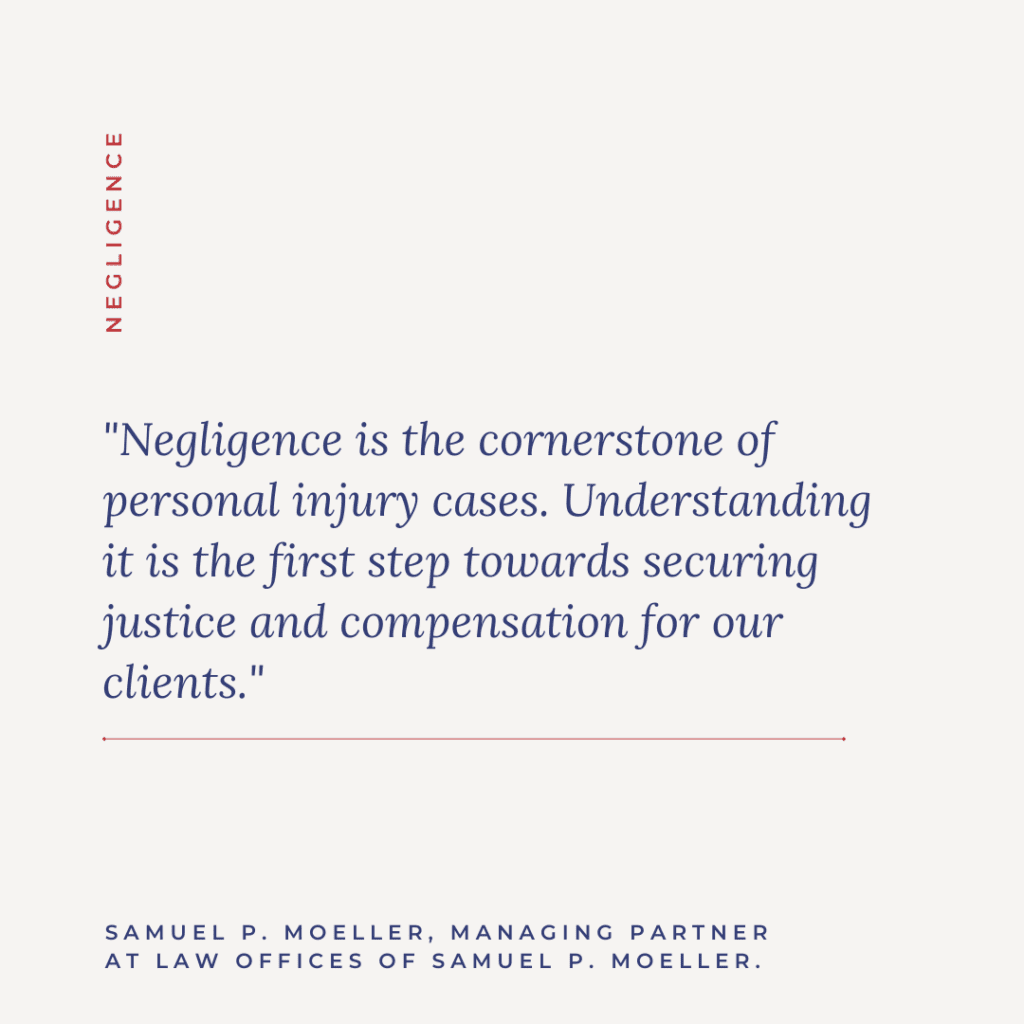Negligence is a fundamental legal concept that plays a crucial role in personal injury cases. Whether you’ve slipped and fallen in a grocery store, been involved in a car accident, or suffered harm due to a healthcare provider’s mistake, understanding negligence is key to navigating the legal process and seeking compensation for your injuries. In this article, we will explore the concept of negligence, its elements, and how it applies to personal injury cases.
What is Negligence?
Negligence is a legal theory that forms the basis of many personal injury claims. At its core, negligence involves the failure to exercise reasonable care, resulting in harm or injury to another person. To establish a negligence claim, the injured party (the plaintiff) typically needs to prove the following elements:
- Duty of Care: The defendant (the person or entity being sued) must owe a duty of care to the plaintiff. This duty varies depending on the circumstances. For example, drivers have a duty to operate their vehicles safely, while property owners have a duty to maintain their premises in a safe condition for visitors.
- Breach of Duty: The plaintiff must demonstrate that the defendant breached their duty of care. This means that the defendant’s actions or inactions fell short of what a reasonably prudent person or entity would have done in a similar situation.
- Causation: There must be a direct link between the defendant’s breach of duty and the plaintiff’s injuries. In other words, the plaintiff must show that their injuries were a foreseeable result of the defendant’s negligence.
- Damages: Finally, the plaintiff must have suffered actual damages, which can include physical injuries, emotional distress, medical expenses, lost wages, and more.
How Negligence Applies to Personal Injury Cases
- Car Accidents: One of the most common examples of negligence in personal injury cases is car accidents. When a driver fails to obey traffic laws, speeds excessively, or engages in distracted driving, they may be deemed negligent if their actions lead to an accident and injuries.
- Premises Liability: Property owners have a duty to maintain their premises in a safe condition for visitors. If someone slips and falls due to a hazardous condition on the property, such as a wet floor with no warning sign, the property owner may be held liable for negligence.
- Animal Bite: Animal bites often lead to personal injury cases where negligence is a critical factor. Negligence arises when a person fails to responsibly control their pet or prevent it from causing harm. This negligence can apply to dog owners who don’t properly restrain their dogs or take steps to avoid attacks.
- Wrongful Death: Wrongful death refers to situations where someone’s demise results from another party’s negligence or wrongdoing. These cases typically involve legal action by surviving family members or representatives to seek compensation for the losses caused by the untimely death. Whether due to accidents, medical errors, workplace incidents, or criminal acts, wrongful death claims aim to provide financial support and hold responsible parties accountable for the loss of a loved one.
Proving negligence in a personal injury case can be complex, as it requires gathering evidence, assessing the defendant’s actions, and establishing a causal link between the negligence and the injuries. Therefore, it’s essential to consult with a qualified personal injury attorney who can help you build a strong case.
Negligence is a foundational concept in personal injury law, as it addresses the failure to exercise reasonable care that leads to harm or injury. Whether you’ve been involved in a car accident, suffered injuries on someone else’s property, or experienced an animal bite, understanding negligence and its elements is crucial for seeking compensation. If you believe you have a negligence-based personal injury claim, consult with an experienced attorney to navigate the legal process and protect your rights. Remember, justice often begins with a thorough understanding of your legal rights and responsibilities.

[forminator_form id=”169″]